The 6 Worst Eating Habits When You Want a Flatter Stomach

If you've been wanting a bit of a flatter stomach and are having trouble reaching your goals, there are two possible culprits that might be getting in the way: a poor diet and bloating.
"We know that excess calories from oversized portions of food and sugar-sweetened beverages can lead to increased belly fat, making it challenging to achieve a flatter stomach," says Amber Pankonin, MS, RD, registered dietitian and owner of the Stirlist. "Bloating or stomach swelling can be caused by underlying digestive issues, food intolerances, or not eating enough of a particular nutrient."
Bonnie Taub-Dix, RD, a registered dietitian and creator of the website Better Than Dieting adds that "constipation could also make you feel puffy and may cause you to mistake bloat for stomach fat."
Whether you are trying to lose weight around your midsection, or just feel like you can't achieve a flat stomach due to bloat, these six eating habits may be preventing you from achieving your goals, according to dietitians. Read on, and for more healthy eating tips check out 57 Healthy Weight Loss Dinner Recipes for Super Busy Week Nights.
Not eating enough fiber.
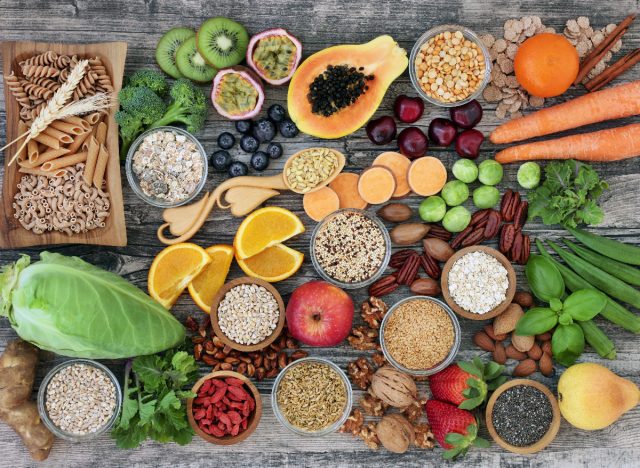
If you don't eat enough fiber each day, it could cause stomach bloat. "A lack of fiber in the diet can lead to constipation or other digestive issues," says Pankonin. "Fiber can improve gut motility, making it easier to go to the bathroom and therefore leading to less bloating."
If you're not sure you're eating enough fiber per day, the Mayo Clinic suggests that women should try to eat 21-25 grams of fiber a day, and men should aim for 30-38 grams.
Not eating enough protein.
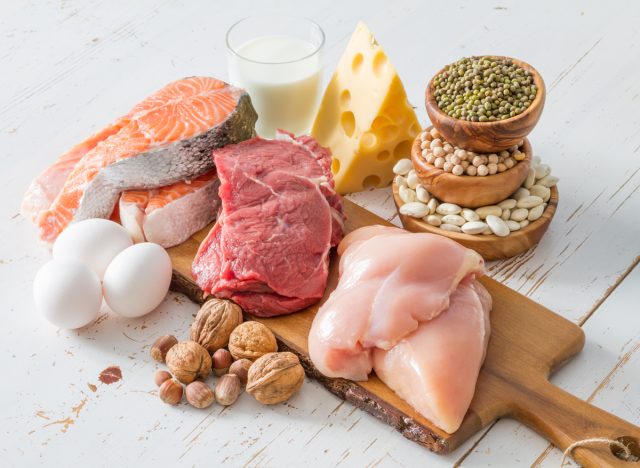
If you are skimping on protein, it could cause bloat and be detrimental to achieving a flatter stomach.
"Protein helps maintain fluid balance in the body," says Pankonin. "If you're consuming too many simple carbohydrates and not enough protein, this might cause fluid retention and bloating."
The Mayo Clinic notes that the recommended dietary allowance to prevent a protein deficiency for an average sedentary adult is 0.8 grams per kilogram of body weight. For example, a person who weighs 165 pounds, or 75 kilograms, should consume 60 grams of protein per day.
However, this can change based on your age and activity level. As you age, your body requires more protein to prevent muscle mass loss, which the Mayo Clinic notes starts between 40-50 years of age. If that's you, your protein needs increase to about 1–1.2 grams per kilogram.
They also note that if you workout regularly, you need about 1.1–1.5 grams per kilogram. For people who do higher impact exercise, like lifting weights, running, or cycling, you may need 1.2–1.7 grams per kilogram.
Chewing gum-especially sugarless gum.
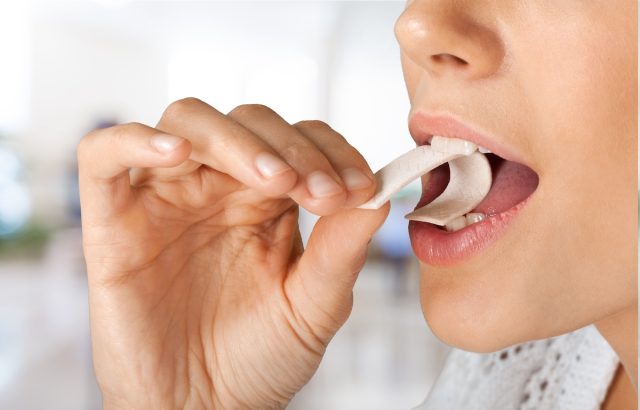
While you may pop in a piece of gum to fend off food cravings or keep yourself from over snacking, it could also be adding to stomach bloat.
"Air gets swallowed when you chew gum, which can lead to bloat and discomfort," explains Taub-Dix. "Sugarless gums are often made with sugar alcohols that can actually cause bloat, gastrointestinal discomfort, flatulence, and in some cases, diarrhea."
Drinking through a straw.

Drinking through a straw can lead to serious bloating. So if you want a flat stomach, consider ditching the straw the next time you're sipping on a beverage.
"Every time you suck your beverage through a straw, like blowing air into a balloon, you're pumping air into your gut," says Taub-Dix. "This process is made even worse when you drink carbonated beverages. You'd be better off lifting the glass or bottle to your lips and sipping slowly."
Drinking too many carbonated beverages.
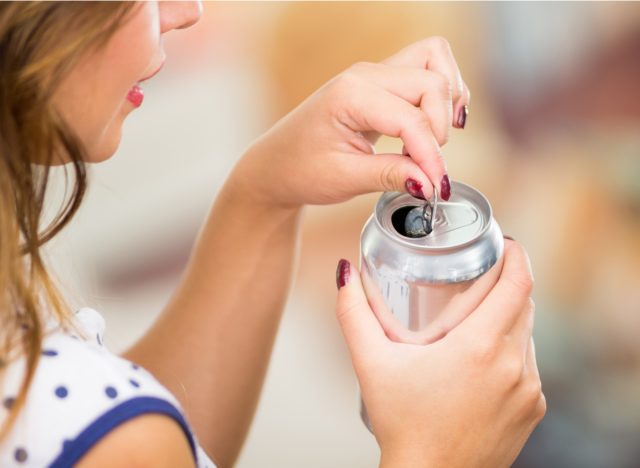
Unfortunately, your seltzer or soda habit may also be making you super bloated.
"Carbonated beverages, diet or otherwise, literally add bubbles to your gut, which can cause you to feel like your abdominal area is expanding," says Taub-Dix. "Although certain carbonated beverages could be healthy, like sparkling water, if you are sensitive and regularly feel bloated, perhaps still, non-carbonated water is best for you."
Consuming too much alcohol.
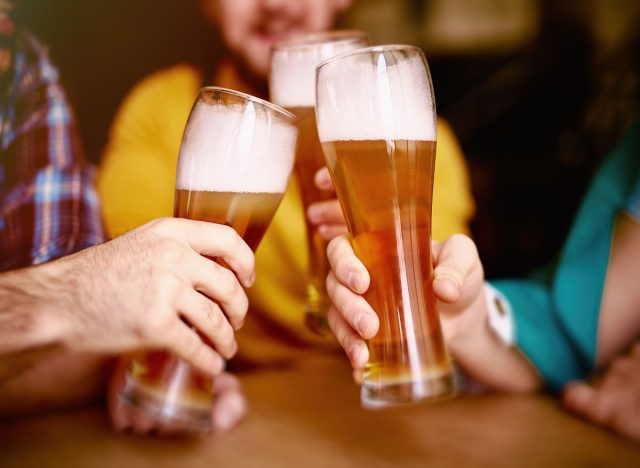
Drinking too much alcohol can contribute to excess belly fat, which could be preventing you from the flat stomach you really want.
"Excessive alcohol intake is associated with weight gain and a larger waistline because alcohol contains empty calories," says Pankonin. "It's also important to consider the foods that are often paired with alcohol like fried or salty foods, which can often lead to bloating."
One study also noted that alcohol may contribute to overeating by stimulating nerve cells in the brain associated with increased appetite.









